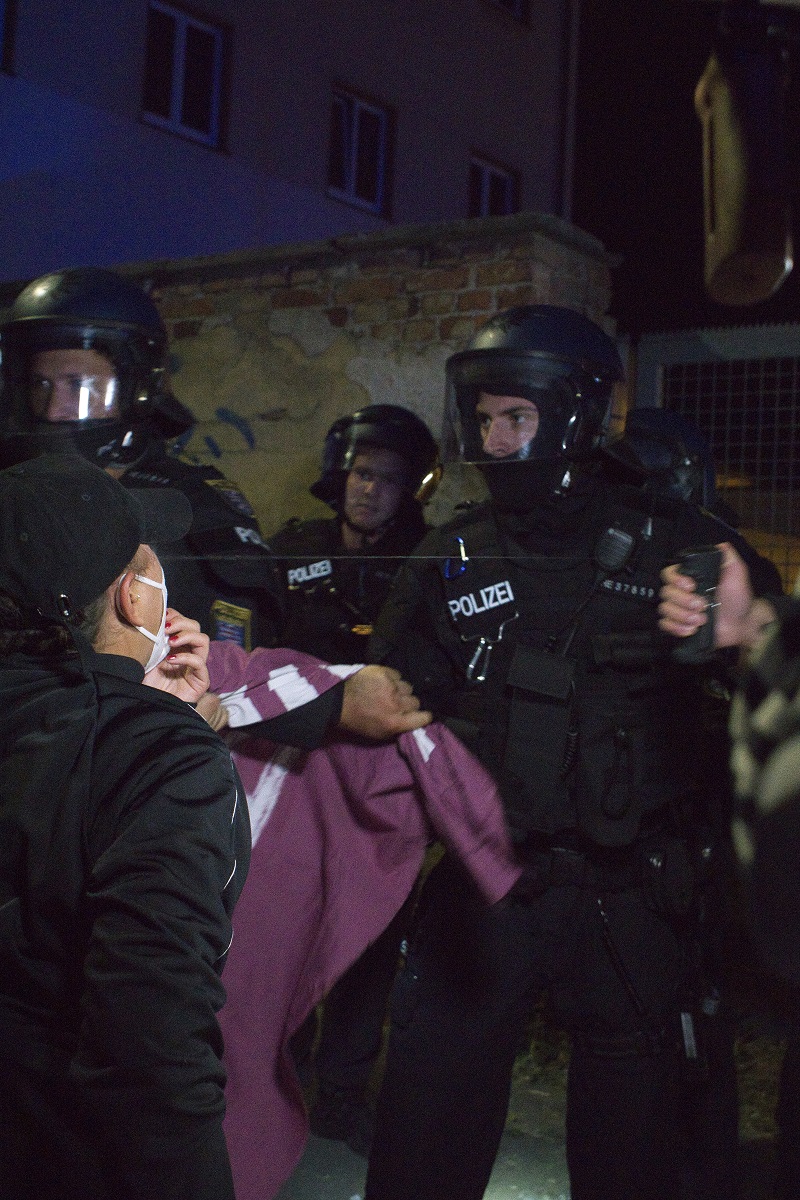If fascism is understood as the extreme denial of the basic principles of liberal thought, that is, of bourgeois democracy, what nowadays is called the far-right or simply fascism can be taken as the modern version of fascism.

Juan Diego García
In reality, it never disappeared and it is now merely being reborn with new characteristics but retaining the foundations of yesteryear.
In fact, the far-right’s narratives in the metropolitan countries and those of the creole bourgeoisie in the periphery allow us to see how basic principles, like the idea of a superior race (which was not discovered by Hitler but a key element in the whole ideological justification of colonialism), are maintained.
One example is Zionism, which makes those principles the central plank of its narrative to justify the extermination of the Palestinians (that “inferior race” they now refer to as “animals”).
It is reminiscent of a similar narrative of classic colonialism which classed the native inhabitants of a territory as beings to subject to the most varied forms of slavery or to exterminate.
If the traditional colonial powers justified their policies as a sort of inevitable and positive progression of civilisation, Zionism does the same claiming that it is “God’s chosen people”. Are they not therefore a people essentially different to and better than the rest? However, today as in the past, such arguments only relate to Zionism as, fortunately, there are other Jews who, far from sharing such religious ideas, highlight their people’s virtues without forgetting their defects, just as any rational person would.
In the West the fascist narrative, though no longer the traditional one, maintains its essence: the West is civilised while the rest of the planet is more or less barbaric and would do well to welcome with open arms multinationals and, if necessary, invading troops who only bring good, at the same time as it warns us of new dangers such as China, Russia and other countries who do not subject themselves to the traditional powers’ designs.

Modern fascism also shares with the classic forms the idea (very much bound to the latter) of so-called “living space”, one of the main arguments with which Hitler tried to justify Germany’s territorial expansion, first into part of the former Czechoslovakia and then into Poland before proceeding on to the massive invasion of the USSR which also sought to assure the “superior race” of “living space”.
Hitler’s “Mein Kampf” sums up the Nazi government’s main arguments very well. And the Führer’s narrative is so similar to Netanyahu’s when he justifies Zionist racism. Modern fascism essentially defends the hardest principles of the neoliberal model and even takes them to extremes (the so-called “freedom” which, in the economic sphere, is nothing other than capital’s total hegemony and the reduction of labour rights to almost nothing).
That is why big business is not bothered by the far-right’s narrative and it maintains and finances new fascism discreetly as a precaution, in case an acute crisis puts the system itself at risk.
Was classic fascism not the ace up business’s sleeve, where the situation became problematic? Have the hard forms of business’s extreme and criminal domination on the system’s periphery – creole fascism – not been the main, and almost permanent, strategy to ensure capitalism’s continuity?

Modern fascism is not then fundamentally different from traditional fascism.
The only changes are some of its forms and the content of its proposals.
For example, before the objectives to be exterminated were the Jewish community, the gypsy community and those considered inferior, like blacks and Indians and disabled people, or those who practised ideologies that were dangerous to civilisation (communists, socialists and even liberals who held humanism’s classic principles as their own and necessary). Although it is not said openly, this whole racist and xenophobic narrative is implicit in the modern far-right’s proposals, shared in many respects by the so-called “moderate” or “centre-right”. Fortunately, a deep crisis has not arrived. However, there are several elements of the economy that allow us to see that we are on the brink of another crisis, similar to the one that brought down the capitalism of before and led to traditional fascism.
To that is added the profound erosion of political institutions that leaves a large space for catastrophist narratives and the decisive role of real clowns and madmen who assume the leadership of governments.
As regards the general atmosphere, an atmosphere of anxiety, uncertainty and widespread pessimism is noticeable over the dissolution of fundamental elements of people’s lives (employment, housing, health, education, social support etc).

That is to say, a future panorama that promises nothing positive.
And that is a condition that will allow fascism’s narratives to take hold, if big business does not find formulas to return to some sort of welfare state or, at least, promote a very much reformed and very much diminished neoliberalism.
(Translated by Philip Walker – Email: philipwalkertranslation@gmail.com) – Photos: Pixabay












.jpg)












